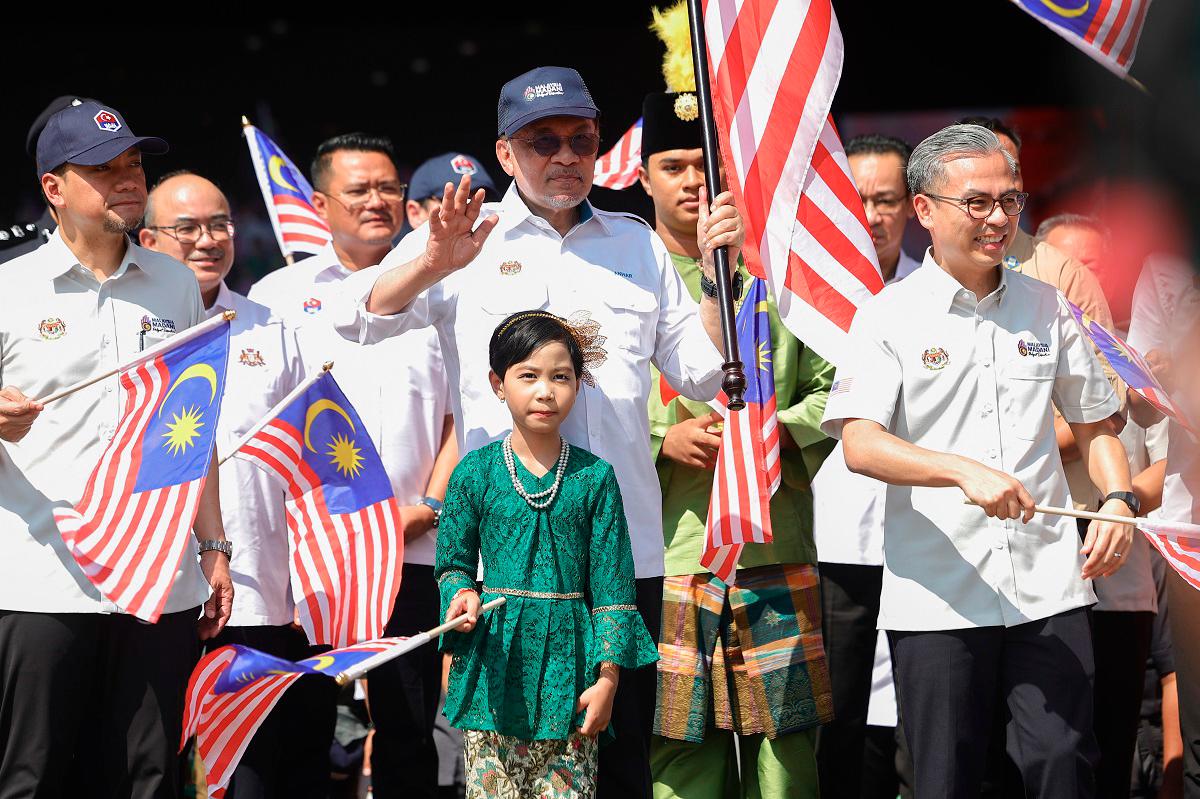MUAR: Prime Minister Datuk Seri Anwar Ibrahim has clarified that the subsidised price of RON95 petrol at RM1.99 per litre is exclusively for Malaysian citizens, while foreigners will pay the market rate of RM2.50 to RM2.60 per litre.
Speaking at the National Month and Fly the Jalur Gemilang 2025 Campaign launch at Dataran Tanjung Emas, Anwar emphasised that the policy ensures government subsidies benefit only Malaysians.
“RON95 petrol is sold to Malaysians at RM1.99 per litre. Foreigners and tourists, including those from Singapore, will have to pay the market rate of RM2.50 or RM2.60 per litre. This is not discrimination but a sovereign nation’s policy to protect its people’s welfare,” he said.
The targeted subsidy initiative aims to reduce government expenditure, which has long been enjoyed by foreigners who do not contribute taxes or directly support the national economy.
Present at the event were Communications Minister Datuk Fahmi Fadzil, Johor Menteri Besar Datuk Onn Hafiz Ghazi, Chief Secretary to the Government Tan Sri Shamsul Azri Abu Bakar, and Information Department director-general Julina Johan.
He also criticised the remarks of an opposition leader from Johor who allegedly questioned the decision to limit the fuel subsidy to Malaysian citizens.
“An opposition leader asked why foreigners have to pay more. I don’t understand. I am the Prime Minister of Malaysia.
“Foreigners do not pay taxes like Malaysians. In which country do non-citizens receive subsidies equal to those given to locals? My primary responsibility is to look after the welfare of Malaysians,” he said.
Anwar also stressed that fuel prices in Malaysia are not raised arbitrarily, adding that despite fiscal pressures, the government has kept prices among the lowest in the region.
“If you don’t believe me, just look at the fuel prices in Singapore, Thailand and Indonesia, all of which are much higher. We are still able to provide (RON95) at RM1.99 per litre. That is my responsibility,” he said.
He added that savings from the subsidy rationalisation initiative would be channelled towards strengthening welfare programmes, rural development, and gradually increasing the minimum wage, including in the public sector and government-linked companies. - Bernama









